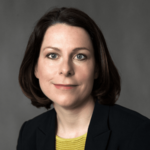Neuroscience Day
Neuroscience Day
- An annual event hosted by NeuroCampus Aarhus
Neuroscience Day 2025
DATE: Tuesday 10th June 2025
TIME: 10.00 - 16.00
VENUE: Aarhus University AULA, Building 1412, Nordre Ringgade 4 , 8000 Aarhus C, MAP ...
REGISTRATION: https://events.au.dk/neuroscienceday2025

Pain and Placebo - Mechanisms, Modulation and Clincial Implication
We are pleased to announce Neuroscience Day 2025, an annual gathering of researchers dedicated to advancing our understanding of the nervous system. This year, we focus on the complex relationship between pain and placebo, a topic that bridges fundamental neurobiology, translational research, and clinical practice.
Pain is a fundamental biological mechanism essential for survival, serving as a critical warning system that alerts the body to injury or potential harm, thereby promoting protective behaviors and tissue healing. Without the ability to feel pain, we would not live for long. However, not all pain is adaptive. A specific type of pain termed neuropathic pain, arises from damage or dysfunction of the nervous system, lacks this protective function and instead represents a maladaptive state where pain persists without an ongoing injury or physiological threat. Understanding the mechanisms that differentiate protective nociception from pathological pain states is crucial for developing effective treatments for conditions where pain has lost its biological meaning.
Pain perception is shaped by complex interactions between peripheral and central nervous system processes, cognitive modulation, and emotional states. At the molecular level, pain transmission and modulation involve ion channels, neurotransmitter systems, inflammatory mediators, and intracellular signaling cascades that regulate nociceptive sensitivity and plasticity. The placebo effect once considered a confounding factor in clinical trials is now recognized as a powerful demonstration of the brain’s capacity to regulate pain alongside its opposite, the nocebo effect. Placebo and nocebo mechanisms involve endogenous neurotransmitter systems, expectation-driven neuroplasticity, and pain modulation pathways, and provide insights into both fundamental neurophysiology and novel therapeutic strategies.
Keynote speakers:

Professor David Bennett (MB PhD), Professor of neurology and neurobiology at the University of Oxford and consultant neurologist at Oxford University Hospitals in the UK. He is head of the Division of Clinical Neurology at the University of Oxford and an Honorary Skou Professor.
His research focus is to understand the pathogenesis of neural injury and neuropathic pain and ultimately improve the clinical management of this debilitating condition. He takes a translational approach ranging from cell-based models to human psychophysics and clinical cohorts. He administers a specialist neuropathic pain clinic based at Oxford University hospitals.
He has led the identification of novel clinical neuropathies and inherited pain channelopathies. He leads major international and national consortia including DOLORisk and PAINSTORM investigating risk factors and determinants of neuropathic pain. He received the PD Wall medal from the Royal College of Anaesthetists in 2016 and became an honorary Skou professor of Aarhus University in 2019. He was appointed to Fellowship if the Academy of Medical Sciences in 2020 for excellence in pain research.

Professor Dr. Ulrike Bingel is a professor of Clinical Neuroscience and Vice Dean for Research at the Faculty of Medicine, Universität Duisburg-Essen. She is also director at the Interdisciplinary Center for Pain Medicine and Translational Pain Research and she is the spokesperson for the Center of Excellence on Treatment Expectations. Furthermore, she is a director at the Advanced Clinician Scientist Program UMEA2.
She is a leading expert in the field of placebo and nocebo mechanisms, and she has a longstanding expertise in investigating the CNS mechanisms underlying nociception, pain, and pain modulation in health and disease. Her research focuses on the interaction between pain and cognitive processes and the impact of cognition on treatment outcomes. In her research, she uses behavioral paradigms, pharmacological modulations, as well as functional and structural brain imaging.
Professor Dr. Ulrike Bingel´s research group is interdisciplinary and consists of neurologists, neuroscientists, psychologists, biologists, and computer scientists. They are based at the Department of Neurology at the University Medicine Essen.

Neuroscience Day - bridging basic and clinical research
NeuroCampus Aarhus hosts an annual Neuroscience Day for all affiliated research labs and centres as well as for students and other people with interest in neuroscience. By bringing basic and clinical scientists together, the organisers wish to encourage collaborations and strengthen translational neuroscience research within the NeuroCampus Aarhus research cluster.
Foundations, scientific associations, and patient and professional organisations spanning the broad field of neuroscience are also invited.
Past Events
2015
The first Neuroscience Day took place on April 28, 2015. More than 150 researchers and students attended the event at AIAS, AU.
Pictures from the event can be found here.
2016
The second Neuroscience Day took place on May 4, 2016. More than 350 researchers and students attended the event at The Lakeside Lecture Theatres, AU.
Pictures from the event can be found here.
2017
The third Neuroscience Day took place on May 2, 2017. More than 450 researchers and students attended the event at The Lakeside Lecture Theatres, AU.
Pictures from the event can be found here.
2018
The fourth Neuroscience Day took place on May 1, 2018. More than 350 researcher and students attended the event at The Lakeside Lecture Theatres, AU.
Pictures from the event cant be found here.
2019
The fifth Neuroscience Day took place on May 13, 2019. More than 380 researcher and students attended the event at The Lakeside Lecture Theatres, AU.
Pictures from the event can be found here.
2021
The sixth Neuroscience Day took place on May 6th, 2021. More than 200 researcher and students attended the event in a interesting new format at Gather.Town.
Contact
For questions regarding Neuroscience Day, please contact:
Caroline Søndergaard Bendixen
NeuroCampus Aarhus
E-mail: carben@au.dk